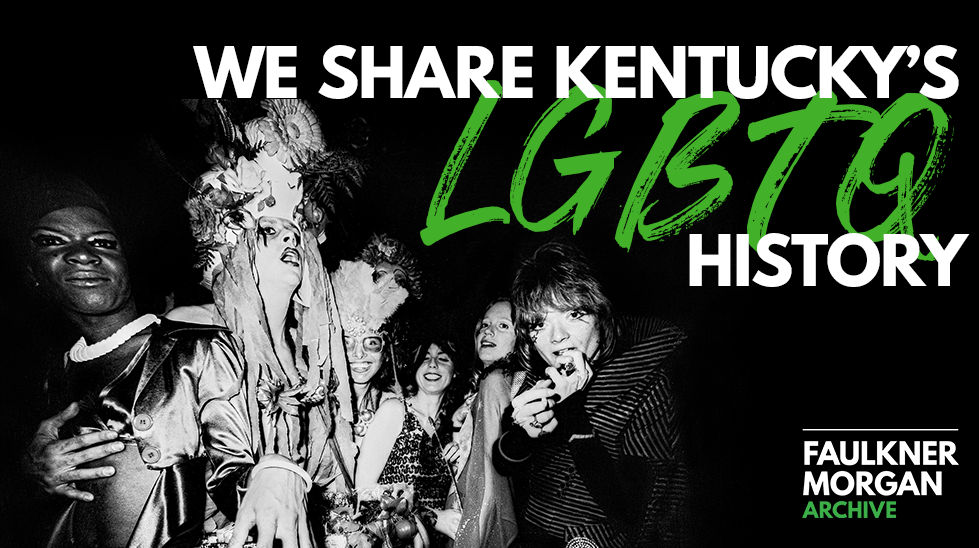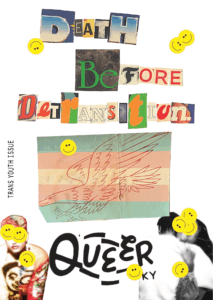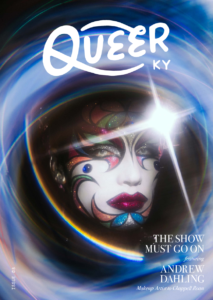Personalized Recovery: Gay SOKY men share their ongoing paths to recovery
The path of addiction and recovery is not linear.
That is something that Lucas Blackburn and Josh Shaw can attest to in their recovery journeys. Currently, Blackburn has been sober for nearly four years, and Shaw has been sober for six and a half years. Despite this, it wasn’t always this way.
The two gay men grew up in the south: Blackburn from Old Hickory, Tennessee, and Shaw from Munfordville.
Alcohol was something that the two men said they were used to being around, but they themselves did not start drinking until their 20s. Blackburn says one of his co-workers started buying alcohol for him, and he could tell within a year of drinking that he knew he was an alcoholic.
In 2002, Blackburn was admitted to the hospital where he remained sober for 30 days.
Blackburn met his partner in 2003, and by the end of that year, he wanted Blackburn to move in with him with the terms that he quit drinking.
“I finally went to a 12 step program in April 2004,” he said, adding that he stayed with the program for a year, and then spent two years on his own before relapsing again.
In 2008, Blackburn and his partner moved to Louisiana, where he started another program before another relapse. From 2011 to 2020, Blackburn went to eight different rehabs, never staying sober for more than six months.
It wasn’t until the couple moved to Bowling Green that he was able to complete a 12 step program and stick to it. Shaw says he grew up around alcohol and drugs, as his family members were users. When he was younger, his goal was to not follow in their footsteps.
At 19, he started drinking, and started going to clubs and bars in Louisville. Shaw says alcohol gave him the push to go on the dance floor, sing karaoke, and interact with other gay men. At 22, Shaw experienced heartbreak and used alcohol to cope. At 29, he started recovery for the first time.
The breaking point was when Shaw’s mother told him to leave after he had driven to her home under the influence. That was the moment he decided to seek help.
“She’d never done that before,” he said. “It came across me … if I don’t do something right now, my life’s not going to get any better.”
Shaw completed 30 days in a rehab and went to stay at a Sober Living Home. He moved out a year later, but continued going to meetings.
He started college at Bowling Green Tech working on his General Education classes. He made friends there and began going out with them to bars. Shaw said he would drink RedBulls.
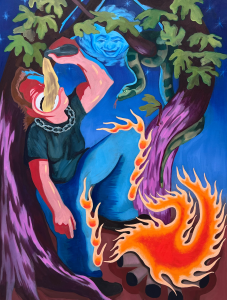
art by Ceirra Evans https://ceirraevans.com/
“I was a year and a half sober and I decided at a drag show to have a shot of whiskey,” he said.
This was when his addiction gradually made its way back into Shaw’s life, and drinking became the main focus again as he attended Western Kentucky University.
Eventually Shaw returned to the same program he had been through before. He graduated from WKU with his bachelor’s degree and completed his program steps. Shaw lived in a Sober Living House again and worked part time at a Zaxby’s in order to have a work schedule that allowed him to have meetings with his sponsor.
At this point he had five DUIs and was driving a scooter.
“I was battling my ego everyday, thinking I deserve better,” he said.
Shaw then went to get his master’s degree and worked as a therapist for the center that he started recovery in. Shaw and Blackburn both now sponsor others recovering. Shaw’s professional career works with those in recovery as well. Blackburn said sponsoring others in recovery helps himself as well as the people he sponsors.
Shaw and Blackburn are not alone in their struggles.
Those in the LGBTQ community statistically face higher odds to have substance addictions.
Mithra Salmassi, the Educational Content Editor for Partnership to End Addiction, a nonprofit that works to provide support to families of those who might be going through addiction, said research shows the LGBTQ community is twice as likely to use substances over their heterosexual peers.
Salmassi said that trans individuals and LGBTQ people of color are even more at risk.
Salmassi cites SAMHSA, The Substance Abuse and Mental Health Services Administration, who puts out national surveys on drug use and health every year.
Salmassi said the 2021-2022 survey only looked at sexual minority individuals, but did not include non-binary or trans individuals.
“They found that sexual minority individuals, who are 18 and older, are more likely to have had a substance use disorder in the past year,” she said. “About a third of bisexual males, bisexual females and gay males have had a substance abuse disorder in the past year, almost twice as likely to have been heavy drinkers, two to three times more likely to use marijuana and are twice as likely to have misused stimulants like cocaine and meth.”
Salmassi said that data has only recently been collected studying the abuse habits of the LGBTQ community, adding that there has been a lack of specialized services for those needs.
“For trans individuals, a big problem is inpatient treatment,” she said, adding that there’s a lack of gender neutral facilities.
However, the situation is improving.
“I think there’s more training for professionals on working with the LGBTQ population,” she said. “There is definitely a movement, especially in the past few years, as people have become more aware of the particulars of someone’s identity, especially a marginalized individual. I would say we are generally moving in a good direction.”
Salmassi, Shaw, and Blackburn encourage LGBTQ individuals struggling with addiction to seek help.
“Don’t feel like you have to adapt to what other people are doing,” said Shaw. “Recovery is personalized. It really is.”
“In order for us to get sober, we have to admit that we have a problem,” Blackburn said.
